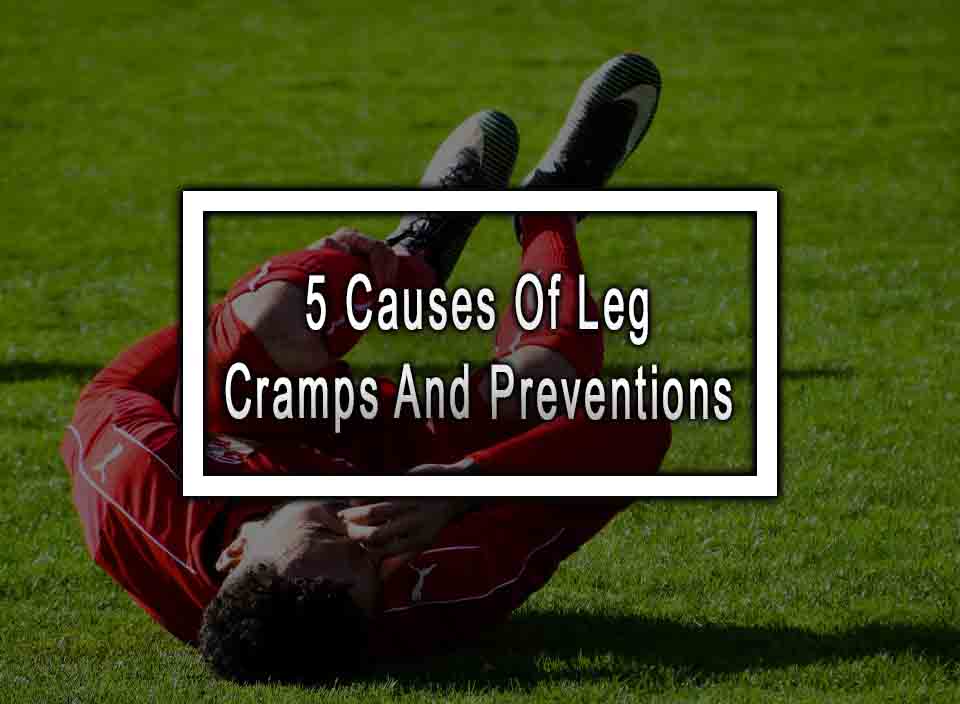Here Are The Causes Of Leg Cramps And the Prevention
Leg cramps are a common problem that can occur in people of all ages. This condition can be quite painful and can even disrupt your daily life. Leg cramps are characterized by sudden and intense pain in the leg muscles, which can last from a few seconds to several minutes. In this article, we will explore the causes of leg cramps and the ways to prevent them.
What are leg cramps?
Leg cramps are a common problem that can occur in anyone, but they are more common in older adults. There are many possible causes of leg cramps, including dehydration, overexertion, and certain medical conditions. Although leg cramps are usually harmless, they can be quite painful and can even disrupt your sleep. In some cases, leg cramps can be a sign of an underlying medical condition that requires treatment.
Causes of Leg Cramps
Dehydration
One of the most common causes of leg cramps is dehydration. Dehydration is a condition in which your body loses more fluids than it takes in. When you are dehydrated, your body doesn’t have enough fluids to function properly. This can cause your muscles to cramp up, especially during exercise or physical activity. To prevent leg cramps caused by dehydration, it is important to drink plenty of fluids throughout the day, especially during and after exercise.
Electrolyte Imbalance
Electrolytes are minerals that are essential for the proper functioning of your body. An electrolyte imbalance can occur when your body loses too many fluids, such as through sweating, vomiting, or diarrhea. This can cause an imbalance in your body’s electrolyte levels, which can causes of leg cramps. To prevent leg cramps caused by electrolyte imbalances, it is important to consume a balanced diet that includes foods rich in electrolytes, such as bananas, avocados, and spinach.
Overexertion
One of the possible causes of leg cramps is overexertion. This can occur when you engage in physical activity that is too intense for your body to handle. Overexertion can cause your muscles to become fatigued, which can lead to cramping. To prevent leg cramps caused by overexertion, it is important to gradually increase your physical activity level and to take breaks when necessary.
Medical Conditions
In some cases, leg cramps can be a symptom of an underlying medical condition. These conditions include peripheral artery disease, diabetes, and kidney disease. If you experience leg cramps frequently and they are not caused by dehydration or overexertion, it is important to see a doctor to rule out any underlying medical conditions.
Pregnancy
One of the common causes of leg cramps is pregnancy, this is a common problem for pregnant women, especially in the third trimester. This is due to the extra weight and pressure on the legs, as well as hormonal changes in the body. To prevent leg cramps during pregnancy, it is important to stay hydrated, maintain a healthy weight, and engage in regular exercise.
Preventing Leg Cramps
There are several ways to prevent leg cramps. These include:
- Staying hydrated: Drink plenty of fluids throughout the day, especially during and after exercise.
- Stretching: Stretch your leg muscles before and after exercise, and before going to bed.
- Massaging: Massage your legs to help relax the muscles and improve circulation.
- Taking breaks: Take breaks during physical activity to rest your muscles.
- Balancing your diet: Consume a balanced diet that includes foods rich in electrolytes, such as bananas, avocados, and spinach.
Conclusion
Common causes of leg cramps are dehydration, overexertion, and certain medical conditions. To prevent leg cramps, it is important to stay hydrated, stretch regularly, massage your legs, take breaks during physical activity, and consume a balanced diet. If you experience leg cramps frequently and they are not caused by dehydration or overexertion, it is important to see a doctor to rule out any underlying medical conditions. By following these tips, you can prevent leg cramps and keep your legs healthy and pain-free.
Leg Cramps FAQ
Here are the most common questions about leg cramps.
1. How can I prevent leg cramps?
Staying hydrated, stretching before exercise or physical activity, maintaining a healthy diet with adequate nutrients and electrolytes, and avoiding prolonged sitting or standing can all help prevent leg cramps.
2. How do I treat a leg cramp?
Gentle stretching and massage can help alleviate a leg cramp. Applying heat or ice to the affected area may also provide relief. In severe cases, over-the-counter pain relievers or muscle relaxants may be recommended.
3. When should I see a doctor for leg cramps?
If leg cramps are frequent, severe, or interfere with daily activities, it is recommended to see a doctor. Additionally, if there are any signs of infection or inflammation, such as redness or swelling, medical attention should be sought.
4. Are there any home remedies for leg cramps?
Yes, some home remedies for leg cramps include drinking plenty of water, stretching and massaging the affected muscles, applying heat or ice, and taking magnesium or potassium supplements. However, it is important to speak with a healthcare provider before trying any new remedies or supplements.
5. Are there any medical conditions that can cause leg cramps?
Yes, some causes of leg cramps turn on medical conditions such as diabetes, peripheral artery disease, kidney disease, and thyroid disorders have been linked to leg cramps. It is important to speak with a doctor if leg cramps occur frequently or are accompanied by other symptoms.











